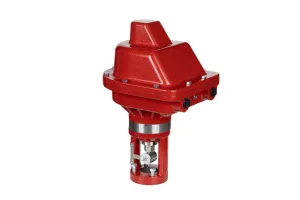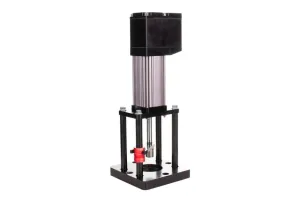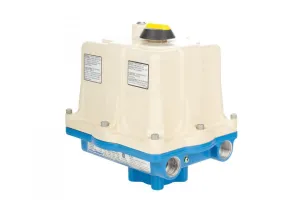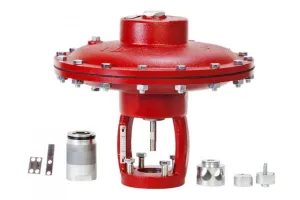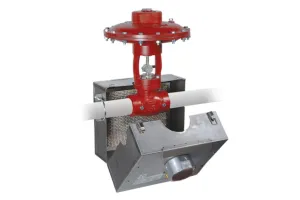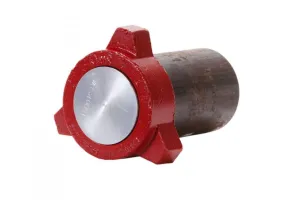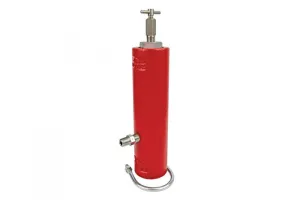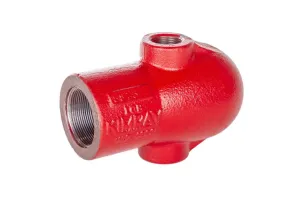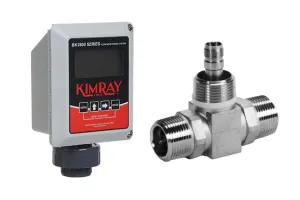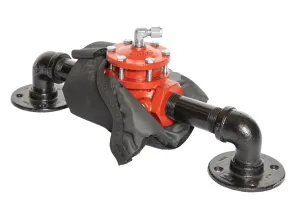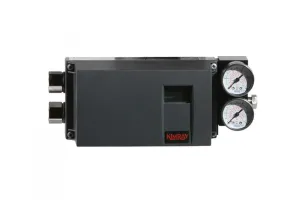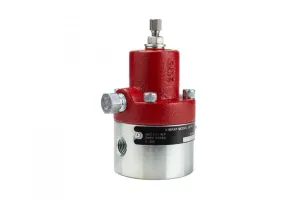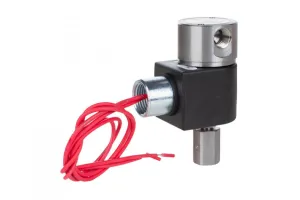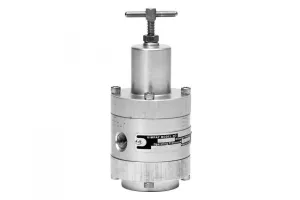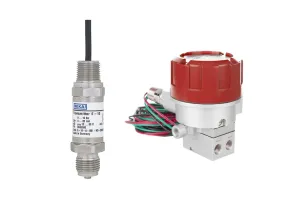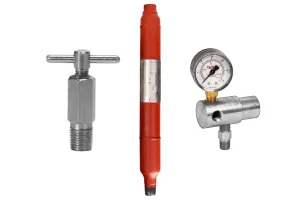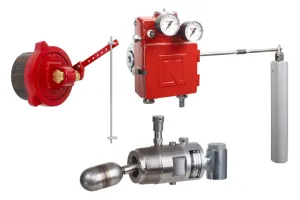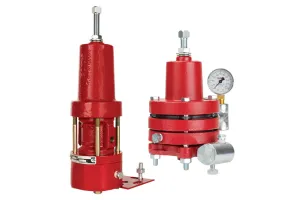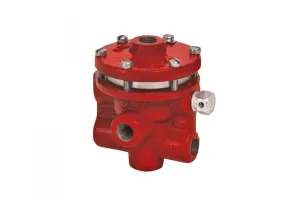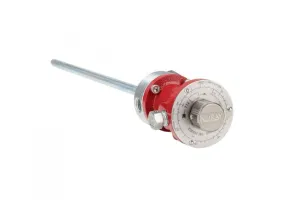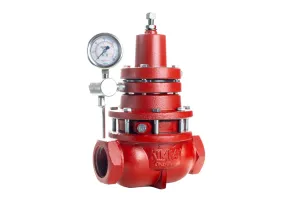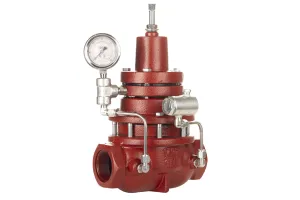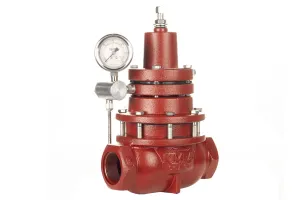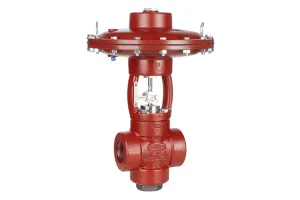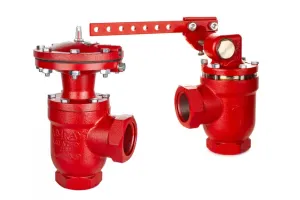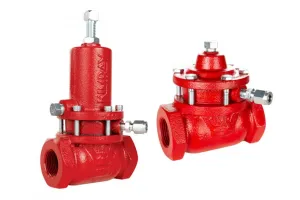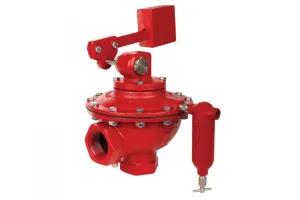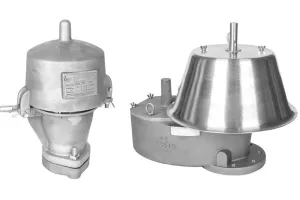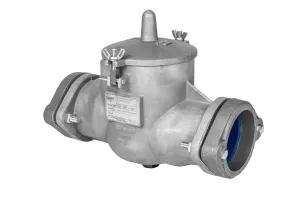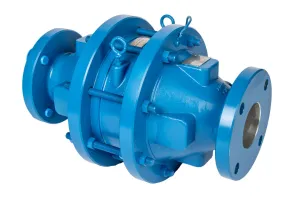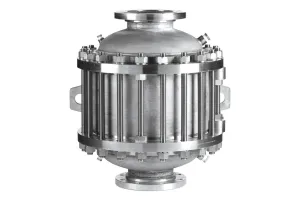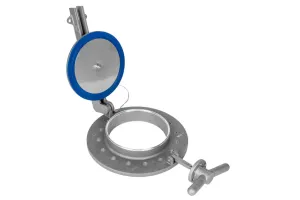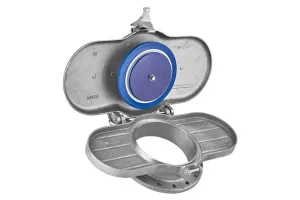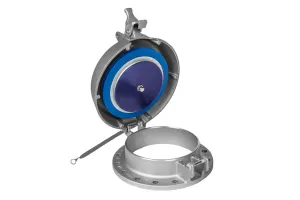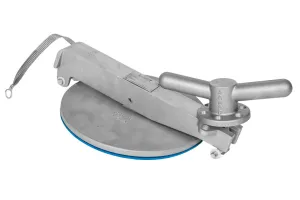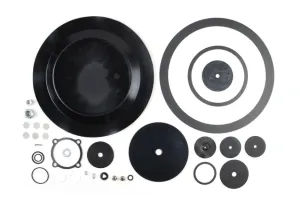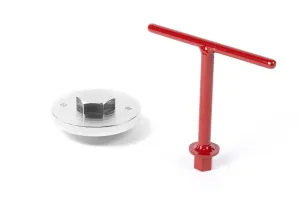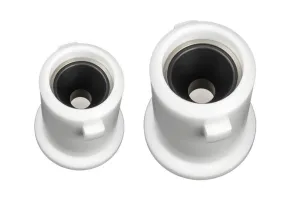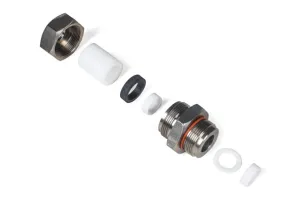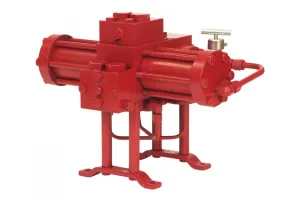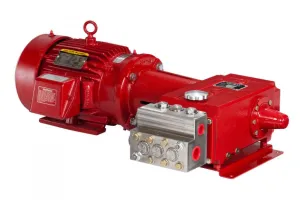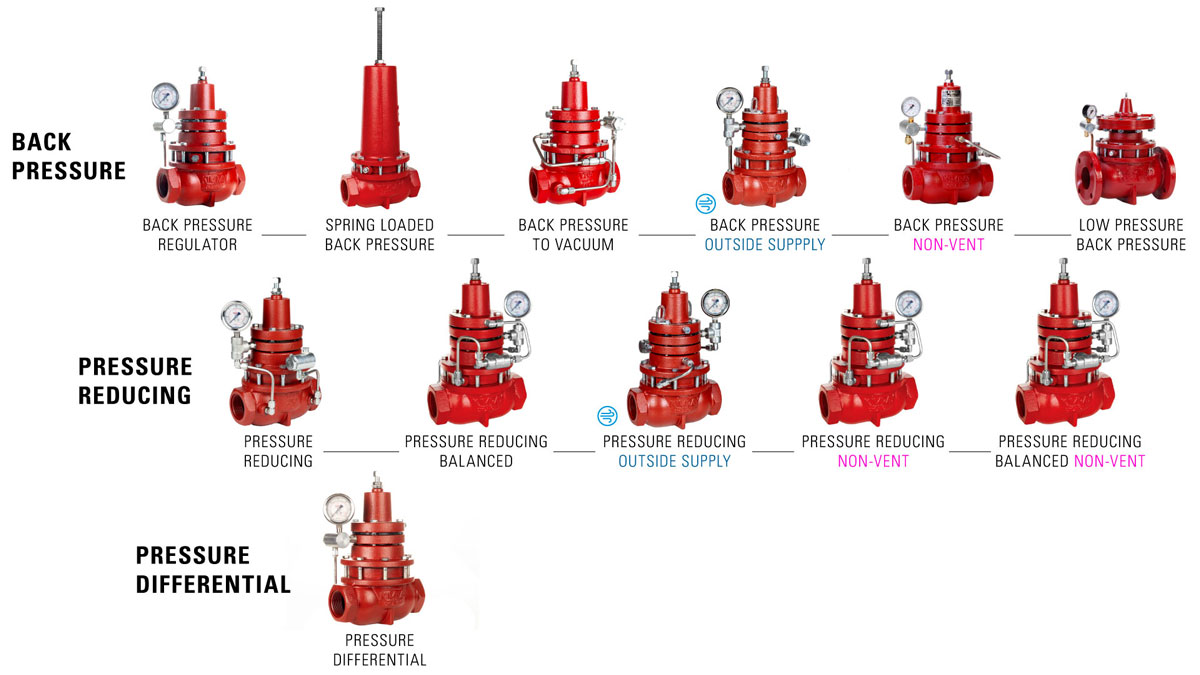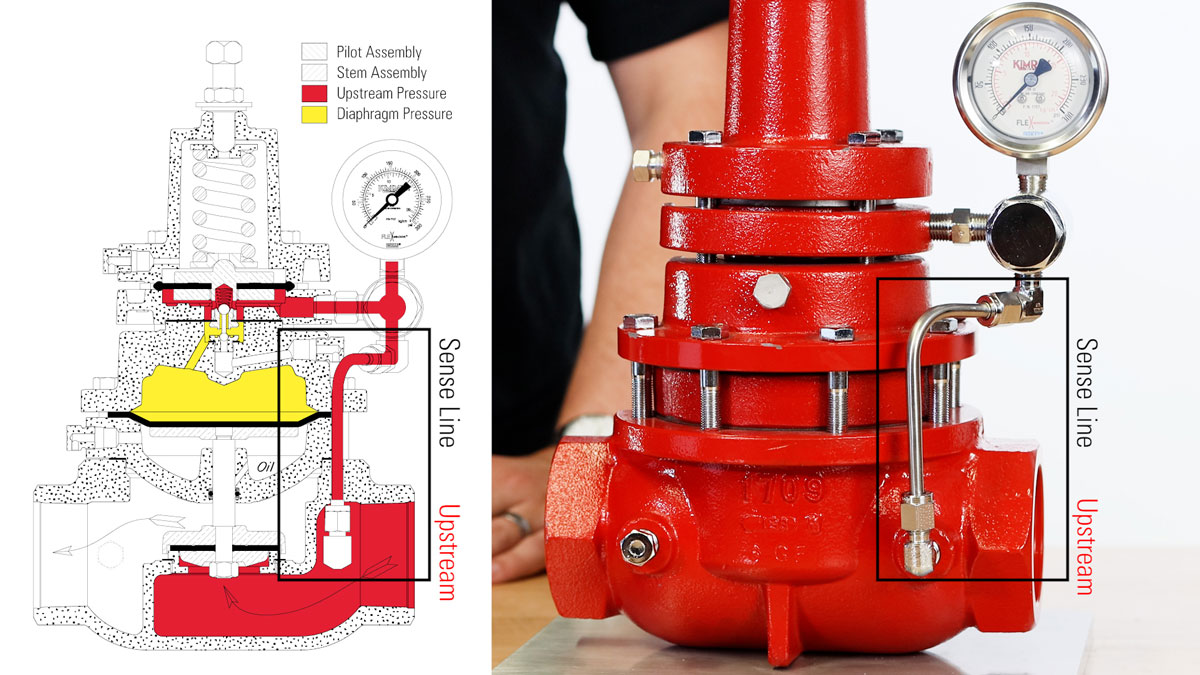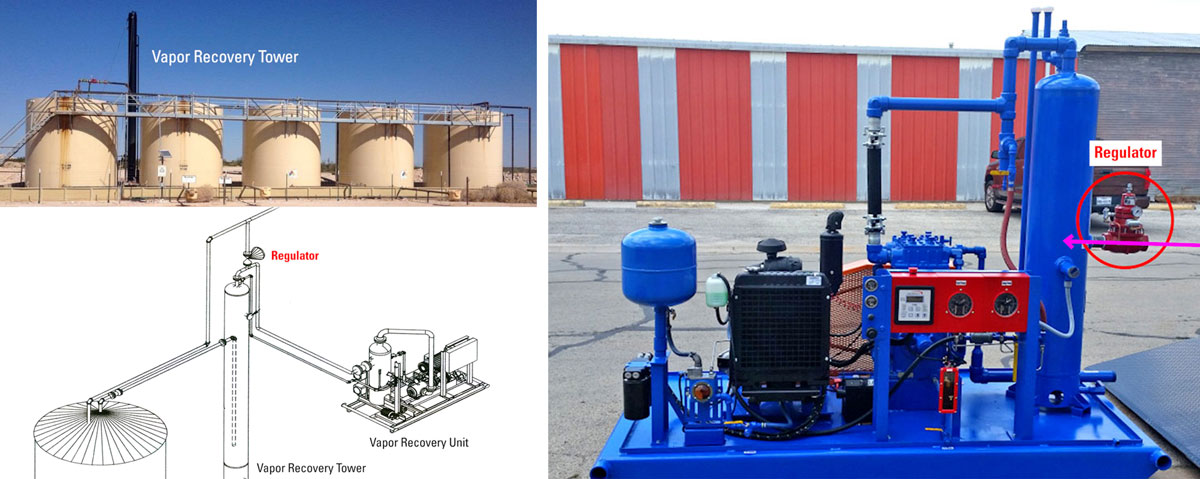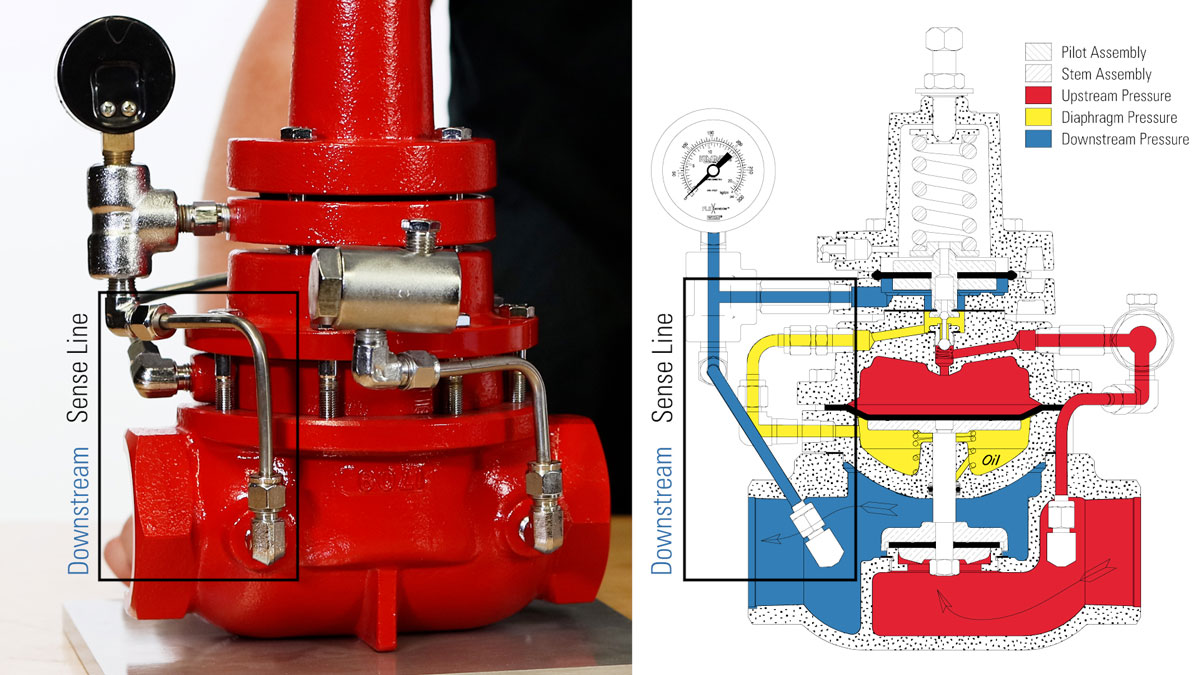Upstream oil and gas producers around the globe use gas pressure regulators to control processes on numerous vessels for many different applications.
Let's look at what producers find so useful about the Kimray line of regulators and explore a few of the most popular product options.
6 key Features of Pressure Regulators
1. Integrated Pilot
The pilot and the valve body are one piece, making this an all-in-one solution with no external parts required.
2. Zero-Emission Options
Most Kimray regulators can be configured as non-venting or made compatible for use with compressed air for zero-emission operation.
Note that outside supply regulator will fail open when you lose supply gas.
3. Ease of Repair and Conversion
Operators can install simple repair kits without the need for scheduled downtime. Most regulators can also be converted for different applications, and several options include convenient ready-to-use conversion kits with pre-bent tubing.
4. Accurate Control Range
Our regulators operate a wide range of pressures—as low as half an ounce and as high as 300 PSI.

5. Sized for Your Flow Needs
Kimray regulators come in full- or reduced-port to provide optimal control in a wide variety of Cvs. These can also be swapped out to adapt to changing production volumes without the need to purchase a new regulator.
6. Material Options
Finally, we offer different elastomer options for varying temperatures and gas conditions as well as optional stainless-steel components for corrosion resistance.
Commonly Used variations
Now let’s explore these commonly used regulators in more depth:
- Back Pressure Regulator
- Spring Loaded Back Pressure Regulator
- Back Pressure Vacuum Regulator
- Pressure Reducing Regulator
- Pressure Reducing Balanced Regulator
- Differential Pressure Regulator
1. Back Pressure Regulator
A Back Pressure Regulator is designed to hold pressure on production vessels and release pressure upstream when a set point is reached. This pressurizes the vessels so that the opening of a control valve or dump valve creates a pressure differential, causing the gas or liquid to leave the vessel and go on to the next destination in the process.
Common applications for Back Pressure Regulators include gas sales lines, separators, heater treaters, free water knockouts and flare lines.
2. Spring Loaded Back Pressure
The primary reason a producer would want to use the Spring-Loaded Back Pressure Regulator over a pilot-operated regulator is that it requires no instrument gas. This means the valve releases no emissions.
Another advantage is you can flow liquid or gas or both simultaneously. For example, in a two-phase free water knockout, it can regulate the oil and gas together, allowing the vessel to separate the water from these elements.
Other applications include heater treaters, central tank batteries, flash separators, and flares.
3. Back Pressure Vacuum Regulator
The Back Pressure Vacuum Regulator can be used in applications where a vacuum is present downstream of the valve. Using a VRU application as an example, when the pressure reaches a set point, the back pressure vacuum regulator will open, sending the gas to a vapor recovery unit for compression.
4. Pressure Reducing Regulator
A Pressure Reducing Regulator creates and holds a downstream pressure set point. Oil and gas producers commonly use a pressure reducing regulator for re-circulation on gas compressors, often called a “recirc valve”.
Another application is to supply fuel or instrument gas on production equipment.
5. Pressure Reducing Balanced Regulator
Pressure Reducing Balanced Regulators are used as Suction Controllers on natural gas compressors to regulate the inlet pressure to the gas compressor.
This regulator consistently controls a set point downstream even if there are large swings in upstream pressure. It features a 100:1 set point drift ratio versus the 8:1 of the standard version.

6. Differential Pressure Regulator
The Differential Pressure Regulator regulates the pressure across your meter run. This regulator maintains a set differential pressure across the valve seat, so the flow is consistent and metered appropriately.
It can also be used to control the injection flow rate in a gas lift application.
Non-Vent regulators
During normal operation, regulators vent gas or pressure off the diaphragm as they adjust. However, some producers need non-venting options if they are using them inside a building or meeting certain emissions regulations.
The non-vent models are a very easy step to take to reduce emissions. However, if your pressure differential is 10 PSI or less, we recommend converting to an outside source of supply air instead of the non-vent option.
Outside Supply Regulators
By using compressed air as the source of outside supply for control devices, energy producers are creating emissions-free operations for many applications.
You can also use the Back Pressure Regulator with Outside Supply to hold back pressure in wet gas applications to reduce the likelihood of malfunction due to heavy condensate.
Certifications for regulators
Manufactured and assembled in the USA, our entire regulator product line is certified for use in North and South America as well as most energy production regions around the world.
